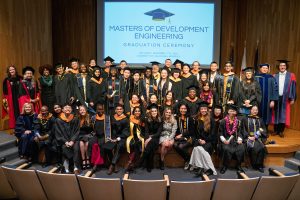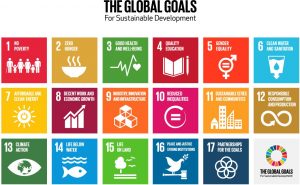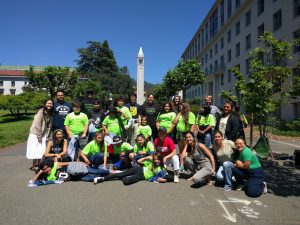
UC Berkeley helped pioneer the field of development engineering more than a decade ago. Yet for many years, the professors teaching Berkeley’s foundational class, DevEng C200 (“Design, Evaluate, and Scale Development Technologies”), didn’t have a textbook for their students. The discipline — which integrates engineering with economics, business, natural resource management, and the social sciences — focuses on technological interventions that can address the needs of low-income communities, at scale.
When the field of development engineering was first getting started, “we had to scrape the bottom of the barrel to find case studies for the students to understand and debate,” explained Prof. Ashok Gadgil, Rudd Family Foundation Distinguished Chair of Safe Water & Sanitation and professor of civil and environmental engineering.
So in true development engineering fashion, Gadgil and colleague Temina Madon, part of the professional faculty at Haas School of Business, teamed up to publish Introduction to Development Engineering: A Framework with Applications from the Field — the discipline’s first textbook. It was published by Springer as an open access title on Sept. 9.
“We want to make this a topic of academic research because, whether it’s business or engineering or economics, everybody is too fractured intellectually and looks up their own stovepipe and doesn’t solve the problem,” Gadgil said. “They just go deeper and deeper and get narrower and narrower in viewpoint.”
“The big picture question,” he continued, “is how are we going to meet the U.N. sustainable development goals and still not blow our planet’s carbon budget?”


The textbook is available online at no cost and in its first few weeks was downloaded from publisher Springer’s website more than 30,000 times. The Development Impact Lab, a USAID-backed initiative co-led by the Center for Effective Global Action (CEGA) and the Blum Center for Developing Economies, supported the expenses of creating the book, which included honoraria for contributing authors and other costs associated with open-access publishing.
Introduction to Development Engineering isn’t Berkeley’s only effort to formalize the field of DevEng. Gadgil, Madon, and Paul Gertler, an economics professor at Haas and the School of Public Health, launched Development Engineering, an open access research journal, in 2015.
“We are going to launch this journal and it’s going to be open access,” Gadgil recalled telling the chairman of Elsevier — the world’s largest, and one of the most expensive, research-journal publishers — at a reception for a prize Gadgil had won. “Because otherwise the journal isn’t going to be useful for people and for the institutions in the countries where poverty is widespread.” To Gadgil’s surprise, the company wanted to get into open access publishing and was willing to take a loss for the first five years of the journal to ensure that DevEng could establish itself as a discipline.
That open access belief carried over to the book.
After Springer expressed interest, Gadgil and Madon talked to EECS Professor Emeritus Eric Brewer, Haas’ Prof. Catherine Wolfram, economics Prof. Edward Miguel, and CEGA, among others, and knuckled down on the book “well before COVID” — as early as the beginning of 2019, Gadgil reckons. Some three and a half years later, anyone can download a free copy or purchase a hard copy from Springer’s website.
Whether or not other colleges’ efforts in this area use the term “development engineering,” there is no longer a need to “scrape the bottom of the barrel” for teaching materials.
Clocking in at 650 pages, the textbook features 19 DevEng projects that graduate students can use as case studies, ranging from fintech for rural markets in Sub-Saharan Africa to stopping arsenic poisoning in India to protecting electoral integrity in emerging democracies. The DevEng practitioners who authored a set of invited chapters have included open-ended discussion questions for students to consider the pros and cons of a project and debate other decisions that could have been made. None of the questions have simple answers, Gadgil said: “It’s still an evolving field.”
Yet rather than just presenting “a bunch of projects put together and stapled into a book,” Gadgil, Madon, and co-editors led the development of four framework chapters at the beginning to provide the intellectual history, ethical challenges, and philosophical underpinnings of development engineering. This is important, Gadgil noted, given the history of white-collar and often-white researchers and engineers going into poorer areas without the context or cultural fluency to ask the right questions, include the right people, or solve the right problems. An instructor can start with those four framework chapters and then select any subsequent projects from which they would like to teach.
“Top-tier universities across the U.S. and across the world have courses that recognize that engineering is not just about solving existing problems of big industry,” Gadgil said. “They recognize that it must also be about solving pressing problems of society.”





